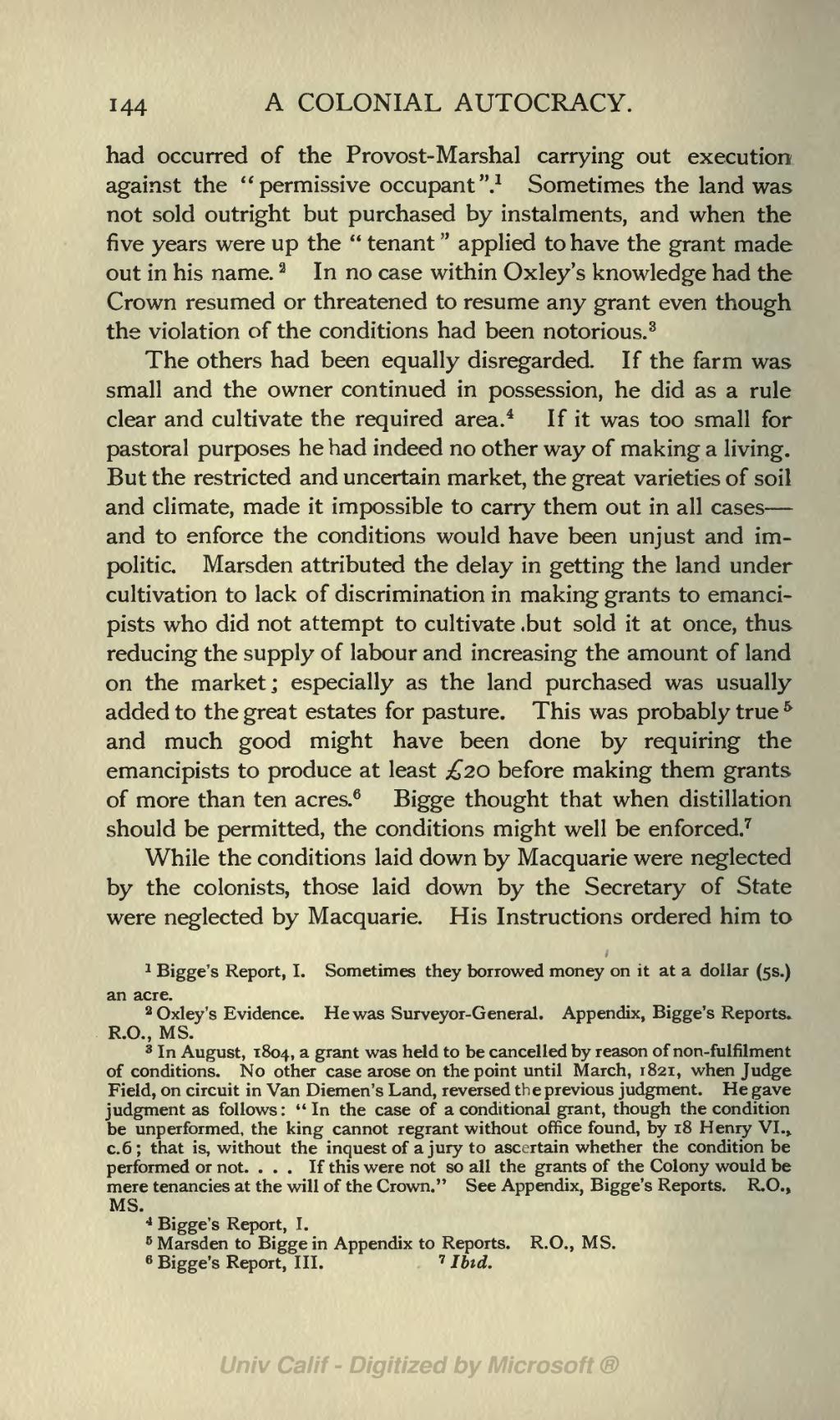had occurred of the Provost-Marshal carrying out execution against the "permissive occupant".[1] Sometimes the land was not sold outright but purchased by instalments, and when the five years were up the "tenant" applied to have the grant made out in his name.[2] In no case within Oxley's knowledge had the Crown resumed or threatened to resume any grant even though the violation of the conditions had been notorious.[3]
The others had been equally disregarded. If the farm was small and the owner continued in possession, he did as a rule clear and cultivate the required area.[4] If it was too small for pastoral purposes he had indeed no other way of making a living. But the restricted and uncertain market, the great varieties of soil and climate, made it impossible to carry them out in all cases—and to enforce the conditions would have been unjust and impolitic. Marsden attributed the delay in getting the land under cultivation to lack of discrimination in making grants to emancipists who did not attempt to cultivate but sold it at once, thus reducing the supply of labour and increasing the amount of land on the market; especially as the land purchased was usually added to the great estates for pasture. This was probably true[5] and much good might have been done by requiring the emancipists to produce at least £20 before making them grants of more than ten acres.[6] Bigge thought that when distillation should be permitted, the conditions might well be enforced.[7]
While the conditions laid down by Macquarie were neglected by the colonists, those laid down by the Secretary of State were neglected by Macquarie. His Instructions ordered him to
- ↑ Bigge's Report, I. Sometimes they borrowed money on it at a dollar (5s.) an acre.
- ↑ Oxley's Evidence. He was Surveyor-General. Appendix, Bigge's Reports. R.O., MS.
- ↑ In August, 1804, a grant was held to be cancelled by reason of non-fulfilment of conditions. No other case arose on the point until March, 1821, when Judge Field, on circuit in Van Diemen's Land, reversed the previous judgment. He gave judgment as follows: "In the case of a conditional grant, though the condition be unperformed, the king cannot regrant without office found, by 18 Henry VI., c.6; that is, without the inquest of a jury to ascertain whether the condition be performed or not. … If this were not so all the grants of the Colony would be mere tenancies at the will of the Crown." See Appendix, Bigge's Reports. R.O., MS.
- ↑ Bigge's Report, I.
- ↑ Marsden to Bigge in Appendix to Reports. R.O., MS.
- ↑ Bigge's Report, III.
- ↑ Ibid.
